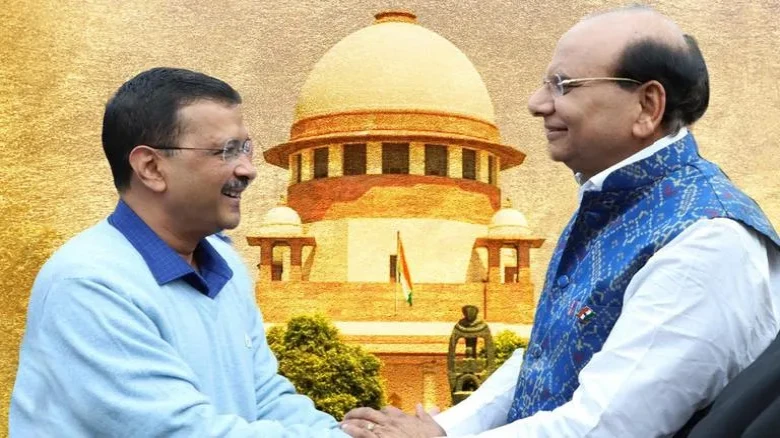The obligation of a democratically elected government to the legislature and the general public is diminished if it is not allowed to oversee and hold its officers accountable.
Digital Desk: In a unanimous decision issued on Thursday, the Supreme Court ruled in favour of the elected government and said that it will have control over all services except law and order and land. The president has given LG authority to do administrative duties. The top court stated that executive administration should only be used for matters outside the purview of the legislative assembly and should be restricted to the powers granted by the President. Otherwise, having an elected body separate from the legislature in Delhi would be pointless. It was decided that it is best to maintain the democratically elected government's authority over its employees.
The obligation of a democratically elected government to the legislature and the general public is diminished if it is not allowed to oversee and hold its officers accountable. The CJI stated, "If an officer is not responding to the government, the collective responsibility is diminished. If an officer feels they are protected from the elected government, they feel they are not accountable."
The Constitution Bench stated it disagrees with Justice Ashok Bhushan in the 2019 split judgement about who has control over Delhi's services, etc.—the Delhi government or the Centre. The principle of democracy is a component of federalism's fundamental structure, ensuring the survival of varied interests and meeting a variety of demands, according to CJI DY Chandrachud, who was reading the judgement. According to the CJI, the Delhi administration must be understood to advance representative democracy because it was chosen by the voters.
"Article 239A(3)(A)(a) does not grant various safeguards to guarantee the protection of the Union Government's interests. It stipulates that the GNCTD legislature has no authority to deal with items 1 through 8 on List 2. According to Article 239AA, the Delhi Government's legislative power is restricted to several lists. entries 1 and 2 as well as number 18 (public order, law enforcement, and land). The legislative framework will only restrict some entries from the legislative assembly of the GNCTD's authority," Chief Justice of India DY Chandrachud said.
"Delhi assembly is granted legislative authority to represent the will of the people. The foundational structure includes the democratic and federalist tenets. Federalism protects various interests and meets diverse requirements," the CJI said.
Who controls the bureaucrat in the Capital, the lieutenant governor or the elected government? This is the ongoing argument in the Delhi case that two smaller benches were unable to determine.
When the case was given to a five-judge bench in May 2022, the court made it clear that the bench would only decide the narrow question of "services" in Delhi and that no other significant question about the meaning of Article 239AA will be decided again. Three topics, namely land, police, and public order, are made clear to be the sole purview of the Centre in the capital under Article 239AA, which also defines the legislative and executive powers of the Delhi government.

Leave A Comment